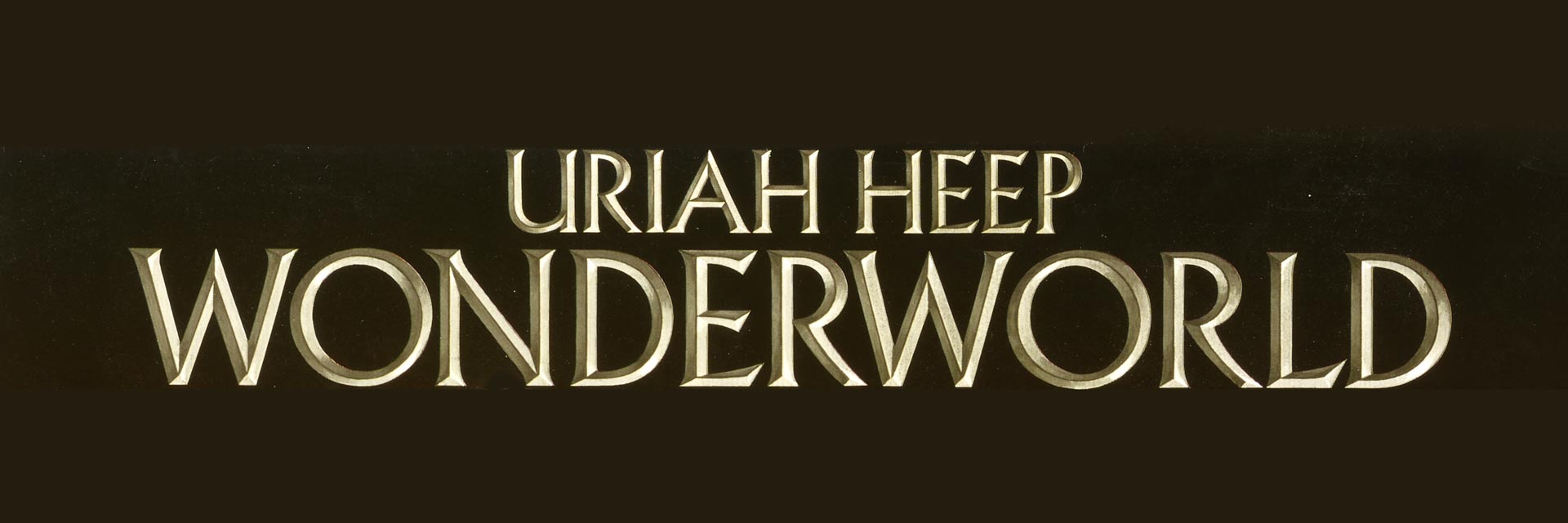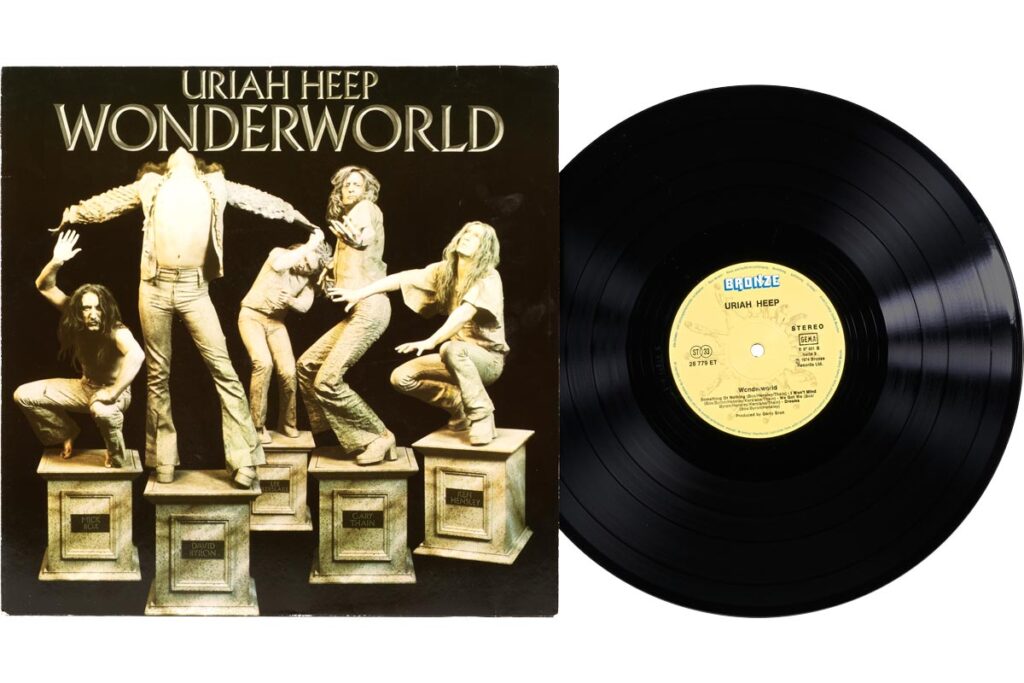The exalted marble statues on the album cover don’t exactly look happy and healthy.
Mick Box, the guitarist, later said that Lee Kerslake (in the middle) reminded him of a garden gnome. Ken Hensley, the keyboard player, even found the cover photo to be completely hideous – perhaps in part because it revealed too much about the true state of the band. Uriah Heep had been on a non-stop three-year frenzy both creatively and on stage. Like many other bands at the time, the musicians were exhausted and in need of a break. They were exhausted from the stress of touring, drug use and constant arguing. As finances were becoming an increasingly big issue, they went abroad for the second time in a row for a record production to save on taxes. Many British bands did this back then, and they all regretted it later. “Recording abroad disrupted the band’s processes,” Hensley said in retrospect. “It had a big negative effect on the group.” Mick Box, the guitarist, said: “That was the most dramatic album I’ve worked on. It was a bloody nightmare.”
Ken Hensley’s dominance as a songwriter – and as a royalty recipient – provided a constant source of contention. Gerry Bron, the producer and manager, was on Hensley’s side, the rest of the band felt oppressed. There were regular clashes, especially between Hensley and somewhat self-absorbed singer and frontman David Byron. Byron was drinking even more as a result, Hensley cried a lot. Among the songs co-written by Byron are “Suicidal Man” and “So Tired” – you can feel Byron’s self-destructive despair in them. Hensley, on the other hand, took refuge in fantasies. His tracks “Wonderworld” and “Dreams”, which set the scene for the album, are about the “wonderworld” of dreams: “So many of my songs were inspired by this strange place.” In the title track, the lyrics address the dream world directly and, strangely enough, refer to it as “Mister Wonderworld”.
Occasionally you can read that Wonderworld is not one of the band’s strongest albums. But then every critic mentions two or three “strong tracks”, and if you add them up, you have the complete album program. The song material on this record is consistently strong, and all the players were at the top of their game in early 1974. “We managed to make everything sound great back then,” said Mick Box. “The album proved that we could still experiment,” said Ken Hensley. The sound was also unadulterated Uriah Heep. Despite being abroad and alcohol and everything.
Uriah Heep – Wonderworld
Recorded: January – March 1974
Published: April/June 1974
Label: Bronze
Production: Gerry Bron
Tracklisting
- Wonderworld 4:29
- Suicidal Man 3:38
- The Shadows And The Wind 4:27
- So Tired 3:39
- The Easy Road 2:43
- Something Or Nothing 2:56
- I Won’t Mind 5:59
- We Got We 3:39
- Dreams 6:10
Musicians
David Byron – vocals
Mick Box – guitar
Ken Hensley – keyboard, guitar, backing vocals
Gary Thain – bass
Lee Kerslake – drums, backing vocals
Guests
José Gabriel – synthesizer
Michael Gibbs – composition and orchestral conducting
Commentary and Trivia
- It is the last album with the “classic” Uriah Heep line-up. A year later (1975), Gary Thain had to leave the band and died a few months later. “You just had to like Gary” (Ken Hensley). “Every bass player I met loved his style” (Mick Box).
- Wonderworld was created in Giorgio Moroder’s “Musicland” studios in Munich, which already had a 24-track machine. The Rolling Stones, Deep Purple, the Scorpions and T. Rex also recorded their new records there in 1974.
- The band sounds heavy, hard-rocking and guitar-heavy in “Suicidal Man” and “I Won’t Mind”, a bluesy six-minute stomper with a crisp wah-wah solo.
- “The Easy Road”, the shortest track on the album, is considered one of the best Uriah Heep ballads and one of the best Hensley songs. Michael Gibbs, the well-known film and jazz composer, provides the large orchestration.
- Mick Box, the guitarist, was then (as now) the soul of Uriah Heep and endeavored to mediate between the squabblers in the band. “I was constantly trying to help Ken and David. It was a difficult time for me as well.”
- Almost every song contains Uriah Heeps trademark “lalala” chorus parts. The most extensive one (with an a cappella part) can be heard in the song “The Shadow And The Wind”, which is reminiscent of older songs such as “Sunrise” and “Stealin”.
- “Something Or Nothing”, a kind of rock’n’roll song with a shuffle rhythm, was chosen as the single release. “So Tired” sounds stylistically similar – David Byron was a rock’n’roll fan.
- The longest track on the album is the closing track “Dreams” (6:10) – it has the makings of a Uriah Heep classic. Ken Hensley offers up all his sonic magic: dim organ, synthesizer punchlines, beautiful choirs, effective dynamic changes and a psychedelic ending. The riff is reminiscent of the Uriah Heep hit “Look At Yourself”.


